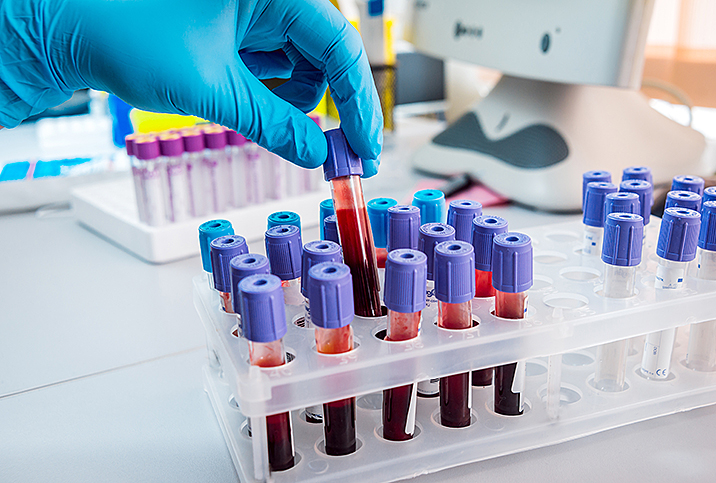Inflammatory Arthritis Doesn't Have to Undermine Family Planning

Inflammation and arthritis are two terms that often go hand in hand, regardless of the actual body part being affected at any given time. Many people experience inflammatory and/or arthritic symptoms in their hands, wrists, knees, hips and shoulders, as well as joints of all kinds throughout the body. Inflammation can also affect connective tissue in the lungs, heart, eyes and other organs.
It's important to understand inflammatory arthritis (IA) is not a unique condition or disease; rather, it's a term used to refer to a group of diseases that all result in inflammation when the body's immune system is overactive.
When inflammatory arthritic conditions are present in the body, they tend to make themselves known. However, you may not be aware of the effects these symptoms can have on fertility, and general and urological health. Damage to the body from inflammation can be irreversible, but inflammation is an often misunderstood aspect of human health, especially as it pertains to reproductive function.
Inflammatory signals assist in reproduction
Determining causality is challenging, especially when talking about potentially chronic conditions such as inflammatory pain or arthritis. Most fundamental bodily functions serve a purpose even when a person's health is optimal, and as medicine understands these functions right now, that's no less true of inflammatory signals within the body. Are they objectively bad and better to avoid? It's difficult to say.
"Inflammatory signals are needed to drive sperm production forward," said Amin Herati, M.D., a urologist and male fertility specialist at Johns Hopkins Medicine in Baltimore. "It's a balancing act—we know that when inflammatory conditions are present, the fertility status can also be impaired or hindered. A lot of different theories have been put out to say the inflammatory signals [that] present naturally are responsible for maintaining what's called the blood-testis barrier, which blocks inflammatory cells from entering into the testicle and where the sperm are being produced. And it's also necessary for supporting cell function."
Basically, inflammation in and of itself is not necessarily a bad thing. Rather, it's likely a vital cog in the machine of human biology. As always, balance is the key.
"Inflammatory signals can cause a problem—anti-inflammatory signals can cause a problem. Everything should really be in homeostasis," Herati said.
Taking anti-inflammatory meds
All of this information might seem to raise red flags for men who are thinking about starting a family but are also taking medications for inflammatory conditions. And research suggests the link between anti-inflammatories and male infertility may be worth considering further.
"Anti-inflammatories, if taken on a regular, routine basis, can potentially have a detrimental effect on sperm production, although a lot of the evidence right now is animal-based in the basic science model," Herati said.
The last part of Herati's comment is important to keep in mind, of course. Considering the general importance of biological homeostasis, if you're thinking of or planning to have kids with a partner and are on these medications, you should talk to your doctor. In general, preventive health maneuvering requires a lot of nuance.
Can inflammatory arthritis be avoided?
Fertility can be a complicated matter even in the best of circumstances. When you factor in a chronic and persistent issue, such as inflammatory arthritis, the priority tends to be the treatment of the condition to alleviate patients of pain and suffering.
"It's kind of a difficult topic because there is some research that shows that patients who do have these sort of systemic illnesses, like rheumatoid arthritis, do have some sort of impact on fertility potential," said Wael Almajed, M.D., a urologist at Tulane University in New Orleans who has a subspecialization in sexual medicine. "But the difficult thing to know is what's causing the infertility. Is it because it's part of their disease spectrum? Or is it because of genetics that made them prone to develop this disease, but also some fertility issues?"
Men entering or at the peak of their fertile years may find they have a difficult line to walk. Inflammatory arthritis tends to develop in men who are younger, in their 30s or 40s, Almajed said. Genetics may impact the development of these diseases, but sometimes the origins are not clearly understood, so it can be difficult to prescribe proactive or preventive measures for men to keep in mind.
But once IA becomes a reality in a man's life, he shouldn't feel the need to choose between pursuing treatment or maintaining the capacity to have children.
"I think for people who already have these conditions, like rheumatoid arthritis or inflammatory arthritis in general, when they are seeking fertility [advice], it's better that they discuss it with a rheumatologist," Almajed said, adding that certain medications may be halted briefly to improve a patient's fertility potential.
Basically, men who have intersecting concerns about IA and their fertility potential should rely on a fertility specialist and use a multidisciplinary approach to their health care, if possible.
Doctor-patient collaboration is essential
If you're using anti-inflammatory medicine and are worried about fertility, Herati emphasized utilizing some care but doesn't think they should be avoided altogether.
"I would take them sparingly around the time of fertility," he said. "Once the primary age of fertility has passed, then you don't have to worry as much about the presence of anti-inflammatory negative effects. But I also wouldn't recommend stopping the anti-inflammatories for an autoimmune condition. So if it's medically necessary that one take anti-inflammatories, then if that's what's directed, then that's what they should do. But if they're in a situation where their case is mild and they can hold off, then best to hold off."
Your doctors can also seek alternative medications, ones with a less severe impact, if you are concerned about the ramifications of your current anti-inflammatory medications on your reproductive potential.
One of the key takeaways should be that there are appropriate steps to take with all medical decisions, and approaches may differ depending on a patient's stage of life.
You can't make those decisions with your unique circumstances in mind unless you have the advice of the appropriate medical professionals available to you as a resource.




















